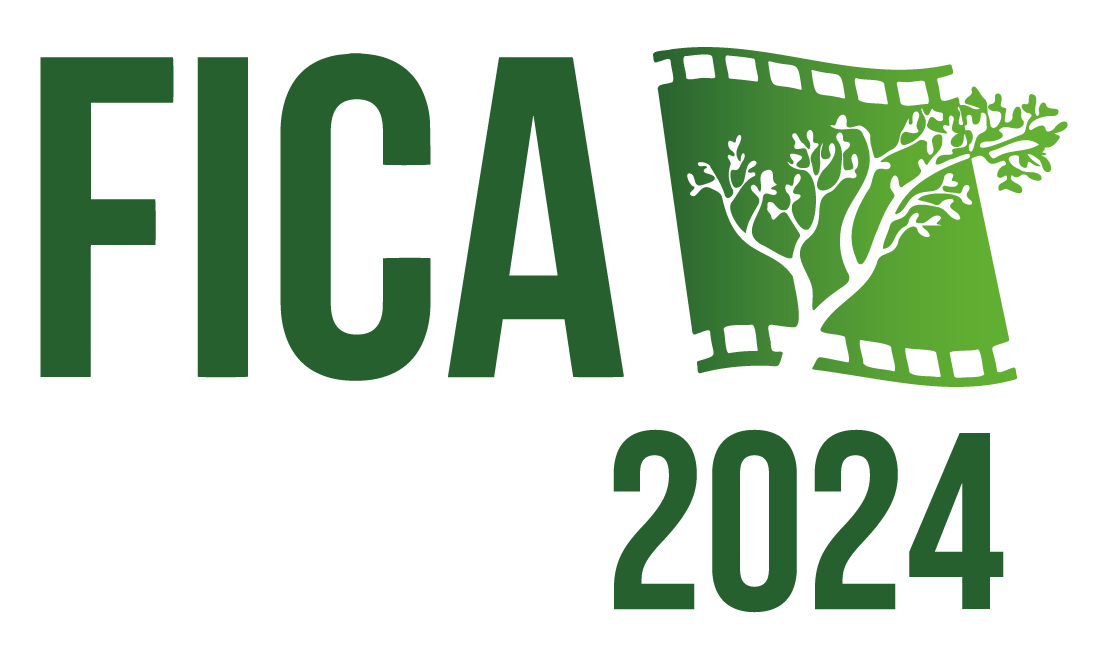Competitive Show Juries
Official Jury
Washington Novaes International Exhibition
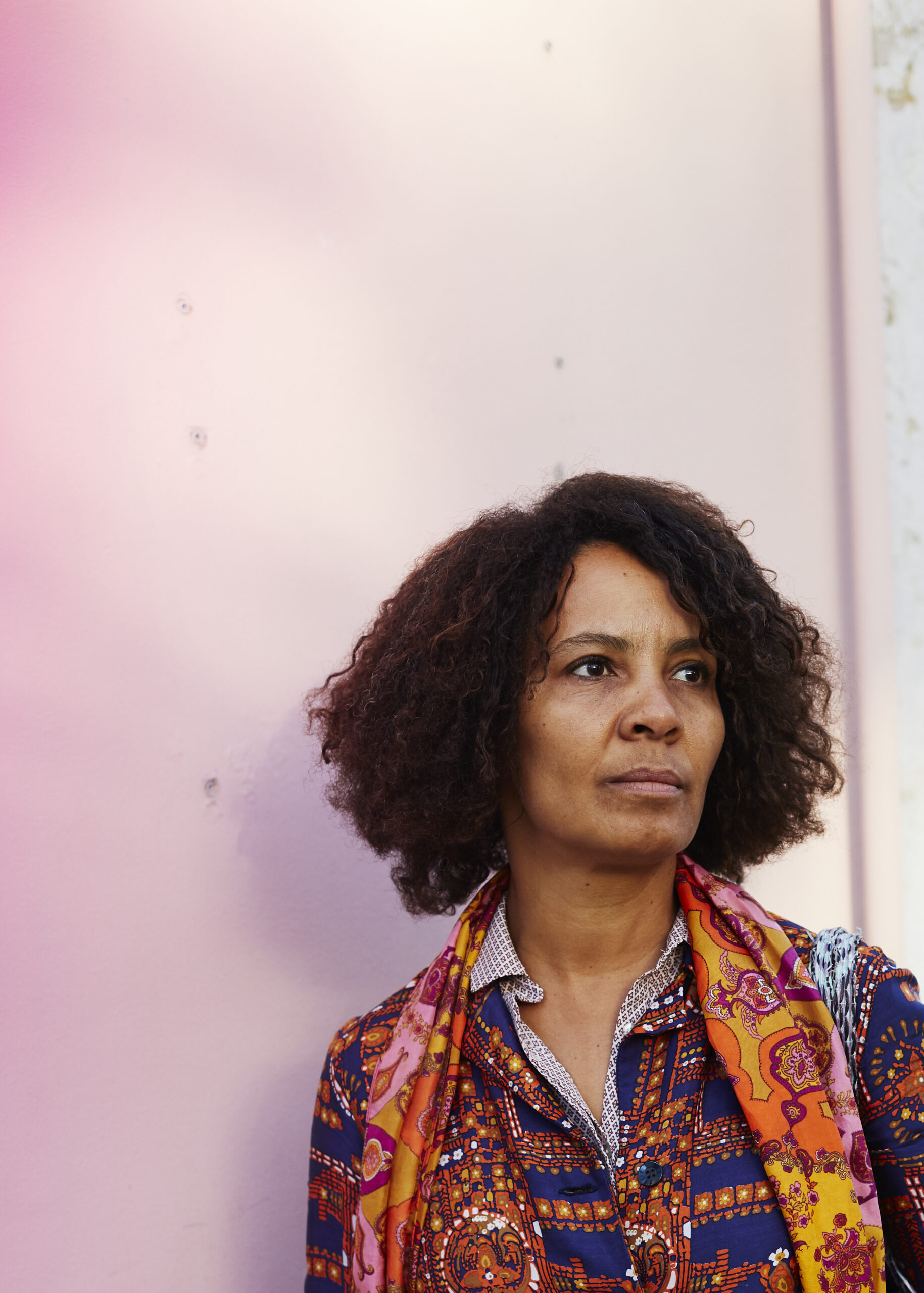
Maria Esperança Pascoal
Director, video director and screenwriter, Pocas Pascoal was born in Luanda where she graduated in visual arts and became the first camera operator in Angola, at the age of 20. In France, he graduated in editing from CLCF. In 1998, he directed his first short film, Pour Nous. In 2002, she was named artist photographer at the Cité Internationale des Arts and participated in several group exhibitions such as the Havana Biennial, Bordeaux Architecture Biennial, Luanda Triennial and the Vegetal Art Fair in Paris. Two other documentaries followed: Memórias de Infância, in 2002 and There's Always Someone Who Loves You, in 2004. In 2008, he dedicated himself to fiction with the short film “Demain Sera Different”. Based on his personal experience, he directed the feature film Alda e Maria, in 2012. With this film, shown at the Locarno Film Festival, Pocas Pascoal won seven international awards. In 2021, she made the telefilm A Palavra Mágica for RTP (Portugal) and the documentary Sopro, which won the Árvore da Vida award for best Portuguese film at the IndieLisboa 2021 festival. In 2022, she was invited to create a video installation for the Museum of Natural History of Lisbon, invoking a dialogue between current natural phenomena, the destruction of ecosystems and colonial history. He is currently in post-production on his feature film Menina and in development on the feature film Sarah Maldoror.
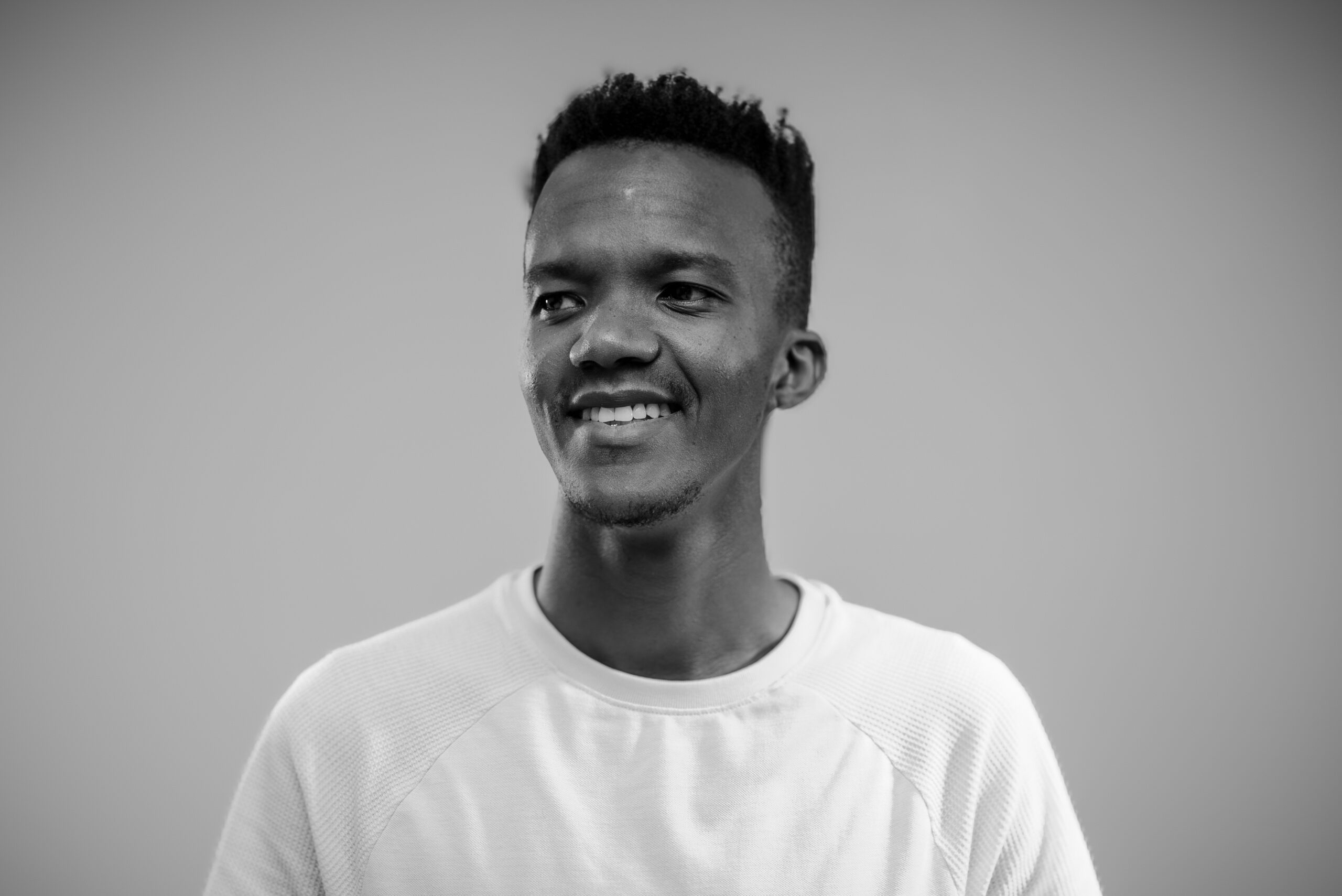
Jorge Pérez
Audiovisual director, he graduated with honors from the University of Magdalena (Colombia) in the Cinema and Audiovisuals program. His work focuses on the development of cinematographic works with a sociocultural meaning with an Afro focus, one of them, his graduation work Lumbalú; Agonía has already represented Colombia in international festivals held in the United States, Canada, Brazil, Germany, United Kingdom, Italy and Uruguay, receiving awards in the last three. He participated as a panelist invited by the Ministry of Culture of Colombia in the event Cinema: Afro-Colombianity, representation and participation and for the Meeting of Afro-Colombian and indigenous filmmakers: narrating with and from ethnic territories, held at the 61st Cartagena FICCI International Festival . He successfully carried out the project “Ethnopedagogical Cinematographic Production to Make Visible the Contributions of Black Communities” with students from the Paulino Salgado Educational Institution in the Nueva Colombia neighborhood in Barranquilla, in which he shared his knowledge with young people in theoretical workshops on film production and the importance of making culture visible through this art. He is currently developing his first feature film, which will be based on his short film, Lumbalú; Agony.
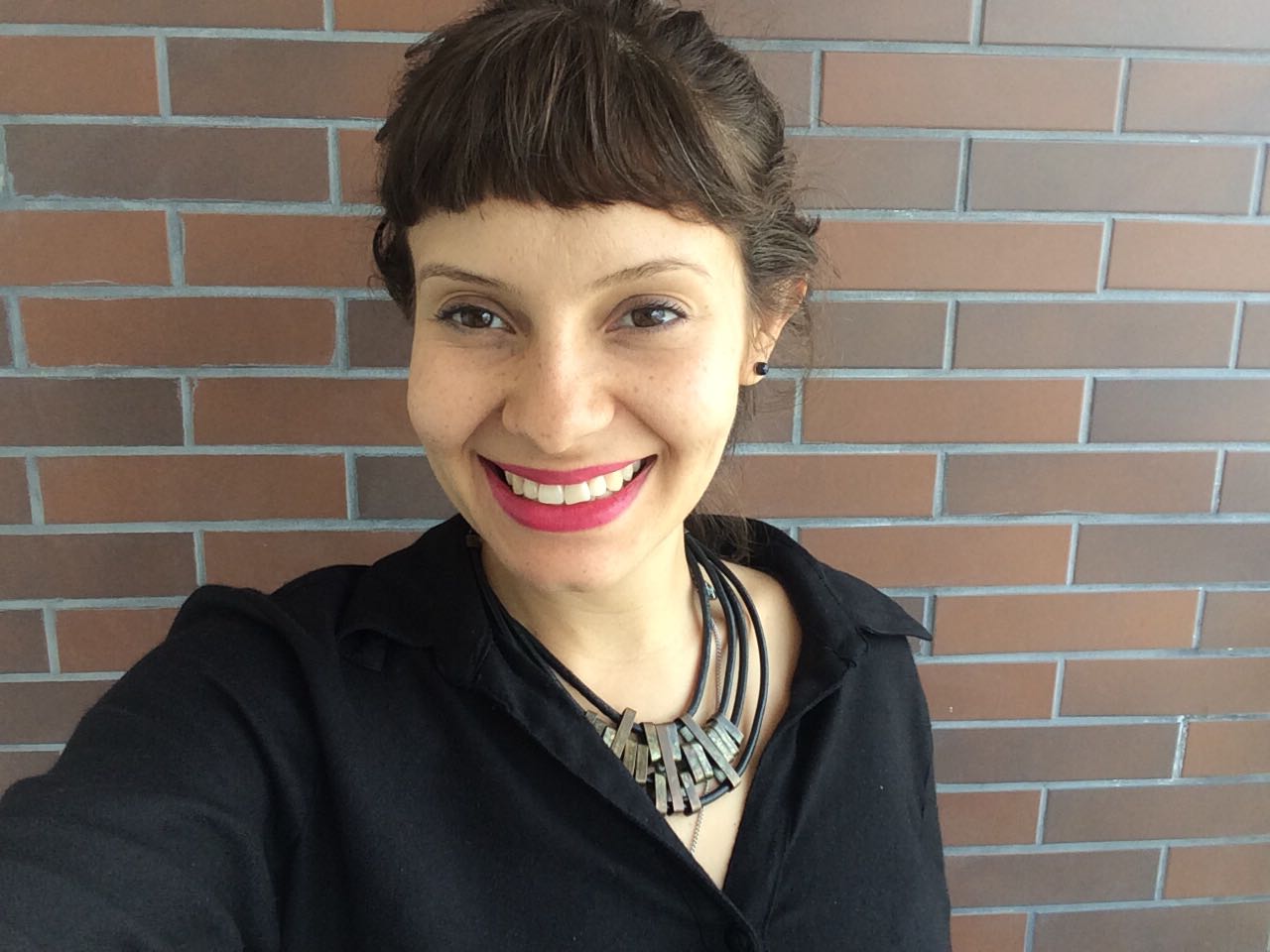
Lidiana Reis
She is the coordinator of the SAPI Market and creator of the CORA Award, which aims to develop projects carried out by women from the Brazilian center-west. As a producer, she made five feature films: The documentary: Paulistas (2017) and the fictions: Alaska (2019), Hotel Mundial (2019), Oeste Outra Vez (2024) and Vento Seco (2020), which had its premiere at the 70th Festival from Berlin. She is a mentor for audiovisual projects in development and idealizer behind initiatives that combine audiovisual training and environmental education for children and teenagers, such as Cine Arandu, held in Pirenópolis-GO.
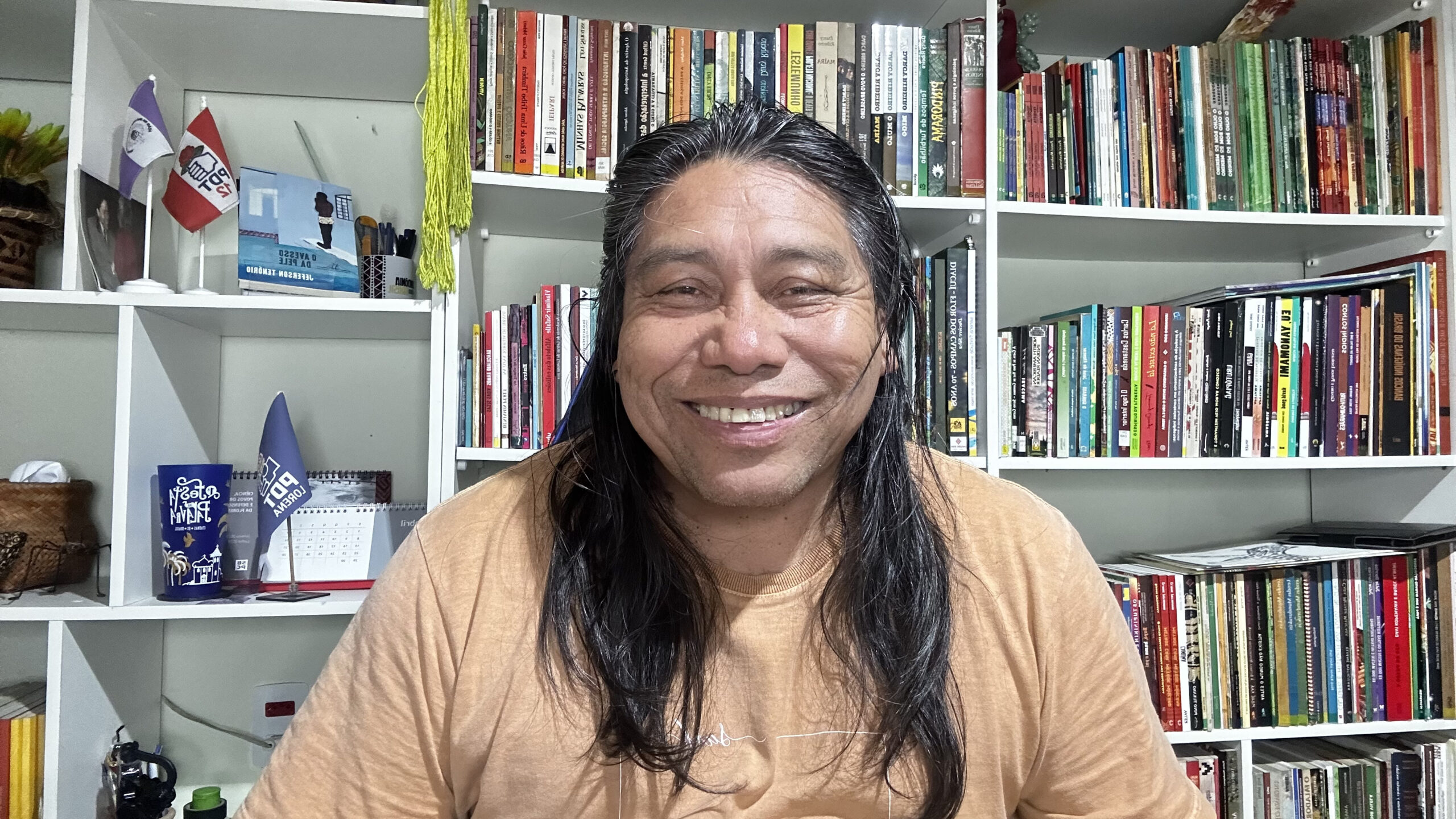
Daniel Munduruku
Writer and teacher from Pará, belonging to the Munduruku indigenous people. Author of 65 books published by various publishers in Brazil and abroad, most of them classified as children's and youth literature and paradidactics. He has a degree in Philosophy and a degree in History and Psychology. He has a Master's and Doctorate in Education from USP – University of São Paulo and a Post-Doctorate in Linguistics from the Federal University of São Carlos – UFSCar.
He has received several national and international awards for his literary work: Jabuti CBL Award – Brazilian Book Chamber (2004 and 2017); Brazilian Academy of Letters Award (2010) – ABL; Érico Vanucci Mendes Award – CNPq; Award for the Promotion of Tolerance and Non-Violence – UNESCO, Bunge Foundation Award for his lifetime of work and cultural performance, in 2018. In 2021, he was honored by the OAB/SP as a literary personality, among others. Many of his books received the Highly Recommended seal from the National Children's and Young People's Book Foundation – FNLIJ. An activist engaged in the Brazilian Indigenous Movement, he has lived in Lorena, in the interior of São Paulo, since 1987. The city where he is the President-Director of the Uka Institute and the Uka Editorial label. He is also a founding member of the Lorena Academy of Letters. He was co-founder of the first online bookstore specializing in books by indigenous authors and has been promoting the Meeting of Indigenous Writers and Artists in Rio de Janeiro for 20 years in partnership with FNLIJ. In 2021 he competed for Chair 12 of the Brazilian Academy of Letters. In 2022 he won the Social Entrepreneur award from the Government of the State of São Paulo. In 2023 he received the Mestres da Periferia award, in Rio de Janeiro. In 2023/24 he acted in the 9pm soap opera on the Globo network, playing the shaman Jurecê in Terra e Paixão.
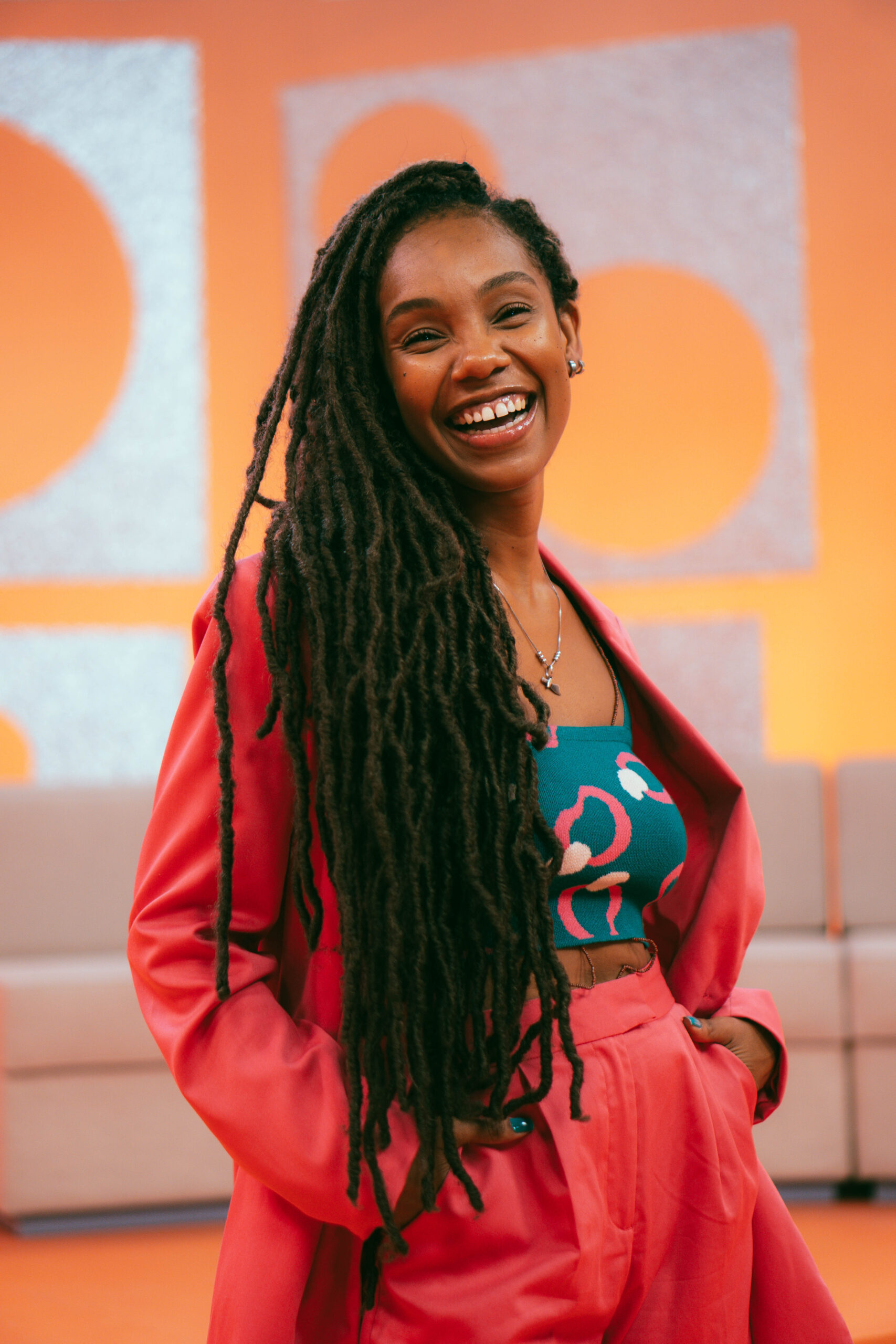
Shirlene Paixão
Director and content creator. In recent years, he has stood out on TV and streaming with works strongly linked to narratives that seek to give new meaning to imaginaries and shed light on socially responsible themes. In 2022, he debuted on open TV with the entertainment program, “Samba Coração” on Band TV. In streaming, in 2021 the series “For an Anti-Racist Education” debuted on Globoplay and since 2020 he has directed a weekly talk show on the GNT channel, “Sexta Black”.
Director of the new generation, her academic and career trajectory is multidisciplinary, which is one of her main differentiators. Graduated from the Martins Penna Theater School and with a Bachelor's degree in Dance from UFRJ, since 2009, in parallel with her work with dance and theater companies, she has developed contemporary works in the area of direction that interact with different artistic languages.
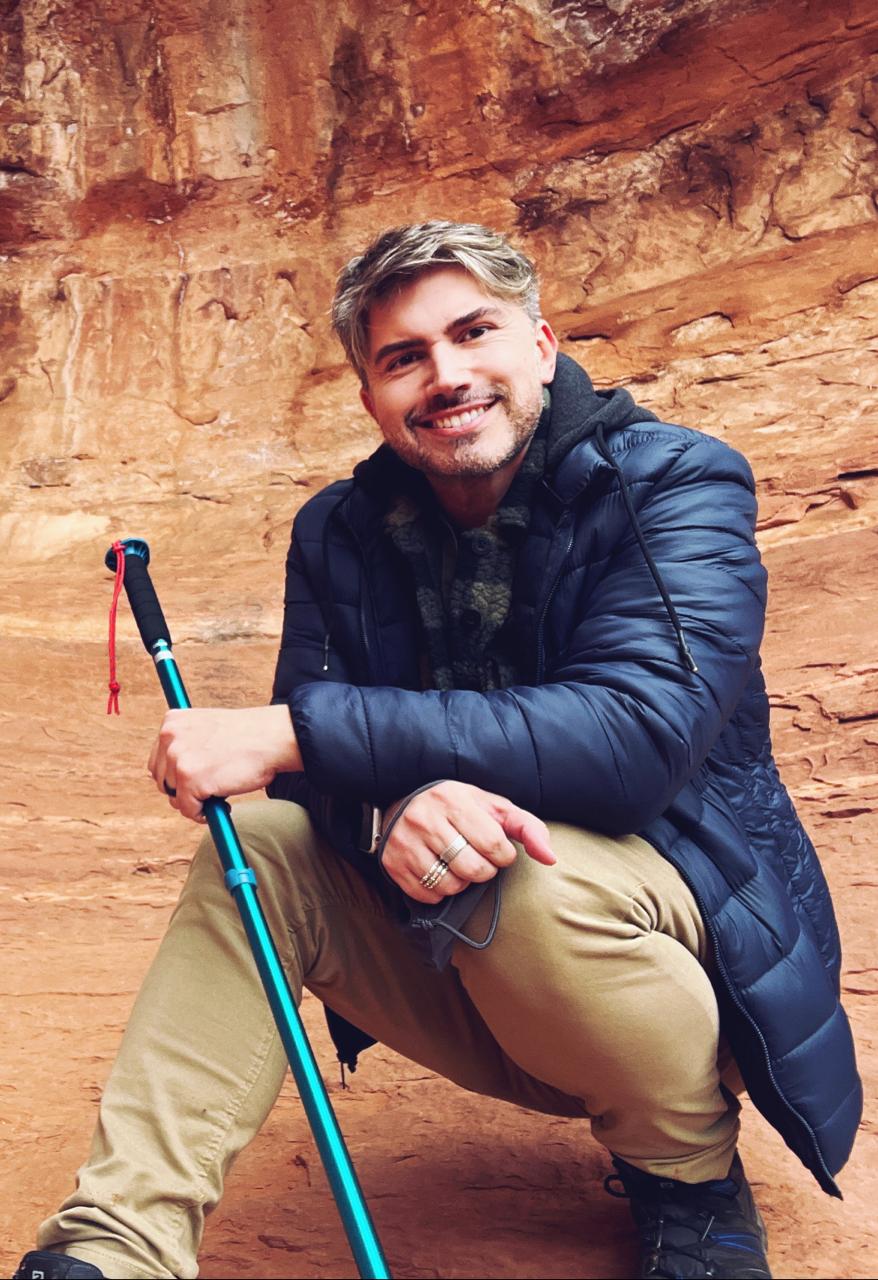
Caio Coimbra
For someone who initially wanted to study medicine, arts and communication seemed like areas that didn't require as much commitment. And he realized that, for those who are truly dedicated, commitment is not related to the area of activity, but rather to their professional attitude.
From his first short film O Menino e a Bola to the ApplyBrasil agency, in which he mobilizes millions of people through campaigns that combat climate emergencies, Caio has traveled many paths.
Strategist, writer, consultant and executor, he learned by producing, knew that ideas needed to get off the ground and was committed to translating them into tangible results and creative initiatives for organizations. He was at the forefront of some of Brazil's most iconic brands in the consumer, retail, media and entertainment sectors, such as Globo, Abril, MTV and National Geographic.
He believes in the power of storytelling, visual appeal and words, as well as the positive impact we can make by valuing the differences around us and creating strong stories that move and entertain the people we want to connect with.
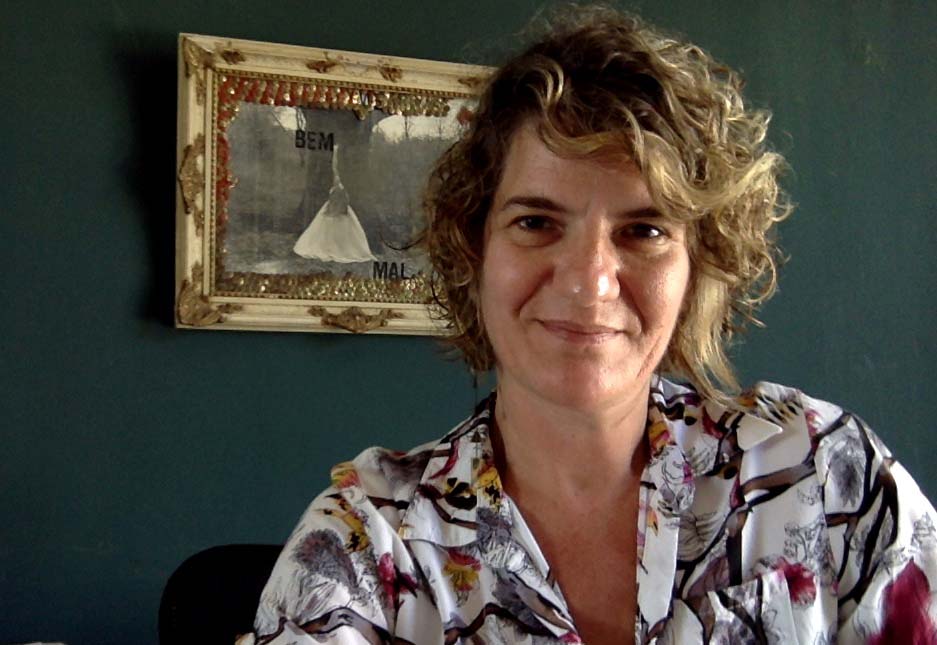
Ana Rieper
Carioca, graduated in Geography from the Universidade Federal Fluminense, where she also studied Social Communication – Cinema, and has a master's degree in Development and Environment from the Federal University of Sergipe. She has worked as a documentary filmmaker since 1997. Among her main works are the film Vou Rifar meu Coração, which participated in more than 40 Brazilian and international festivals; the feature film Clementina, about the singer Clementina de Jesus; the original medium film from the Fifa Plus Sissi platform, about the iconic Brazilian football player; the series Natureza Feminina, about ecology and gender, and Vou Rifar meu Coração – series; in addition to the short films Mataram meu Gato, Veluda and Saara. She recently released the documentary Nada Será Como Antes – the music of Clube da Esquina and is completing the feature film Paraíso, a documentary about the legacies of the colonial condition in contemporary Brazil, and a documentary series about country music. She is developing, as director and screenwriter, the miniseries “Novela Trezoitão”.
Jury Press
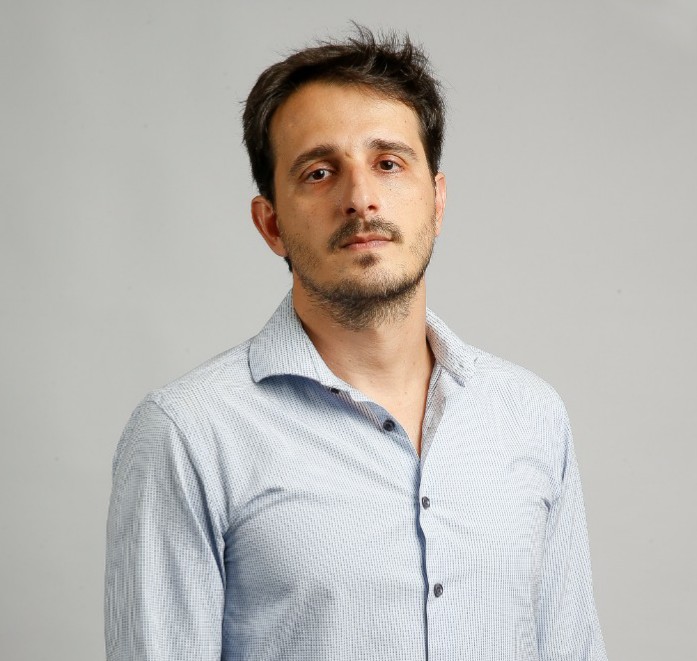
Vinícius Sassini
Special reporter for Folha de São Paulo, correspondent in the Amazon, based in Manaus. Previously, he worked at the branch in Brasília. He has been at Folha since 2020. He has been a reporter for 21 years, having worked for O Globo, Época, Correio Braziliense and O Popular. In Brasília, he worked for 12 years.
He has a degree in Journalism from UFG, in Economics from PUC-GO and a postgraduate degree in Theory and Practice in Creative Documentary from UAB (Autonomous University of Barcelona).
He won 30 journalism awards, including two Esso Awards and four international ones: King of Spain Award (Press category), GDA Award (Investigative Reporting), Roche Award for Health Journalism (Written) and SIP Award for Journalistic Excellence (Human Rights, honorable mention).
In Folha, he published the following series of reports, with on-site investigation in the Amazon region: “Not a centimeter demarcated”, produced after investigation in seven indigenous lands; “Yanomami exploited in piaçaba”, in the middle Rio Negro; “Siege of villages”, with presence in the Yanomami, Kayapó, Mundurucu and Sararé lands; and “Deaf Marajó”.
In the field of documentaries, he directed “Escape” (2018), “Exu killed a bird” (2020) and “Custódia” (2021). The films were screened at 25 festivals and received five awards. “Escape” was exhibited at the Barcelona Museum of Contemporary Art (Macba).
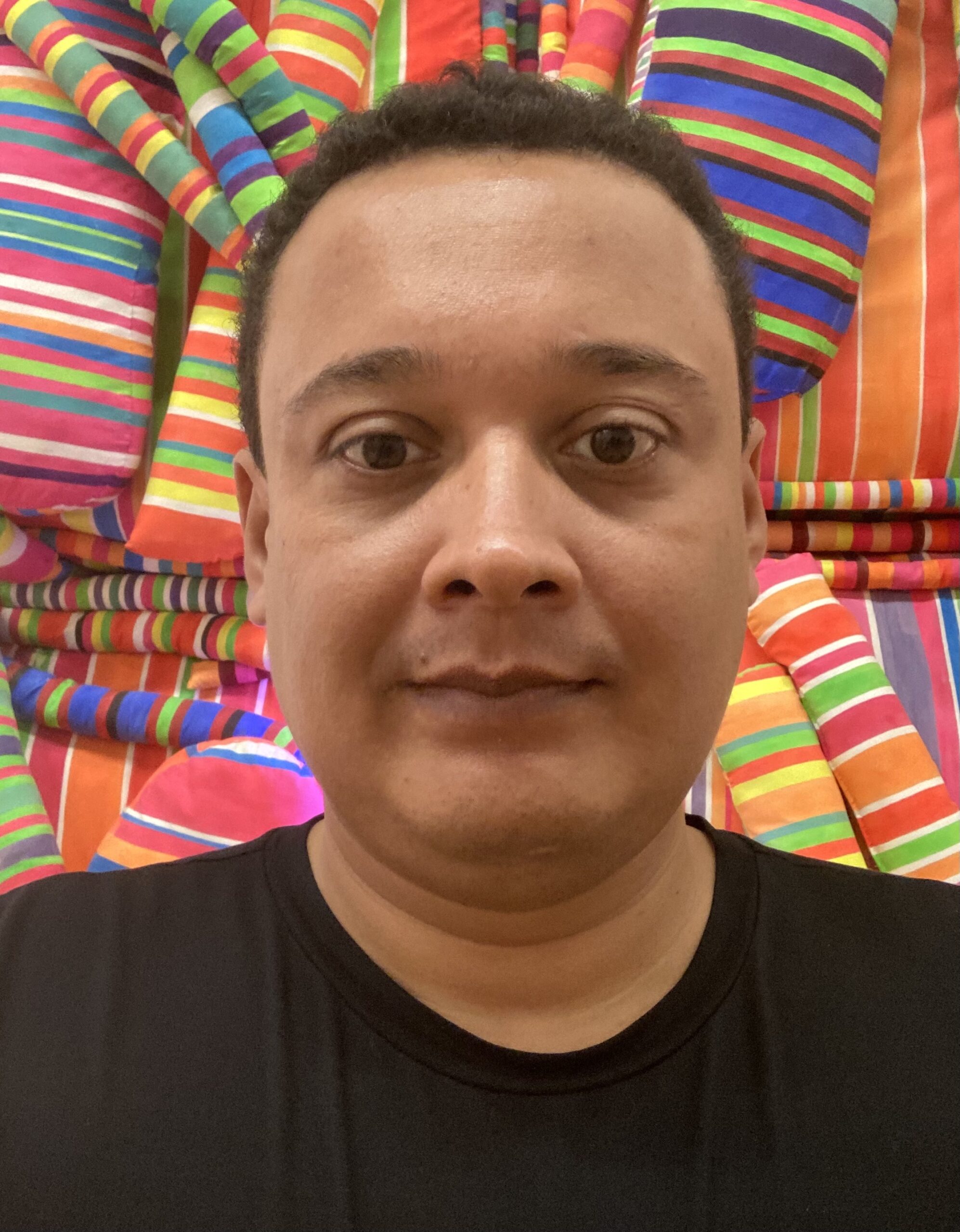
Tiago Coelho
He is a reporter for Revista Piauí and a film scriptwriter. Graduated in Communication from PUC-Rio, he was the screenwriter of the short film Chico, awarded at the Brasília Festival and one of the screenwriters of the feature film Madalena, selected for the competitive screening of the 50th Rotterdam International Festival.
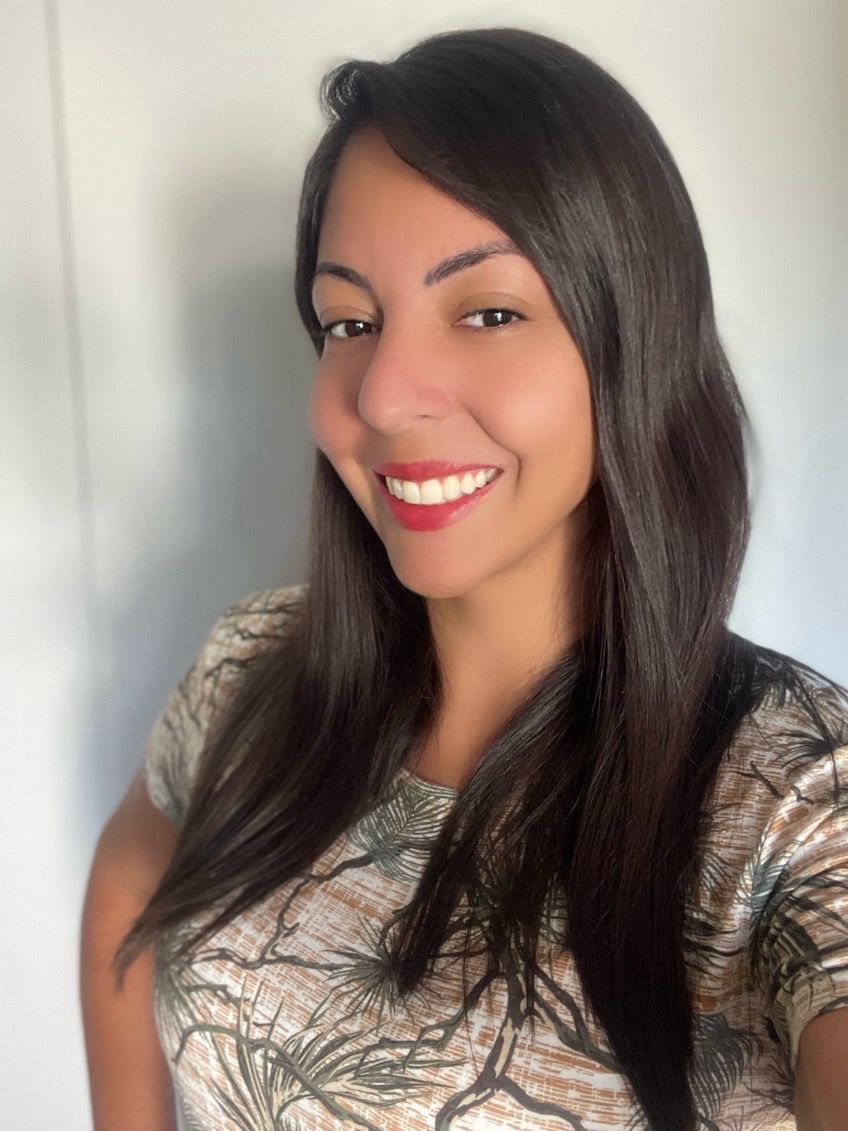
Pollyana Cicatelli
Graduated in journalism from the Pontifical Catholic University of Goiás (PUC-GO), with a specialization in Organizational Communication and Culture, Art and Entertainment, Pollyana currently plays the role of culture and entertainment editor at the prestigious news portal Mais Goiás, in addition to acting as communication advisor.
His professional experience includes participating in the front line of the renowned film exhibition “O Amor, a Morte e as Paixões”, as well as the production of the experimental short film “AI Ambiental” for the Go Film Festival 2024.
In the cinematic sphere, Pollyana follows her journey as a screenwriter, having already written a short film and a series, both in the animation genre. Currently, he is in the process of transforming writing into audiovisual material, bringing his narratives to life. Among his projects, a story stands out that addresses the commitment of a group of friends in the search for the preservation of the planet, through sustainable initiatives and environmental protection actions.
In addition to her work in the audiovisual field, Pollyana has a passion for period films, romances and criminal investigation plots. His deep respect for cultural diversity is reflected in his approach to all forms of artistic expression around the world.
Young Jury
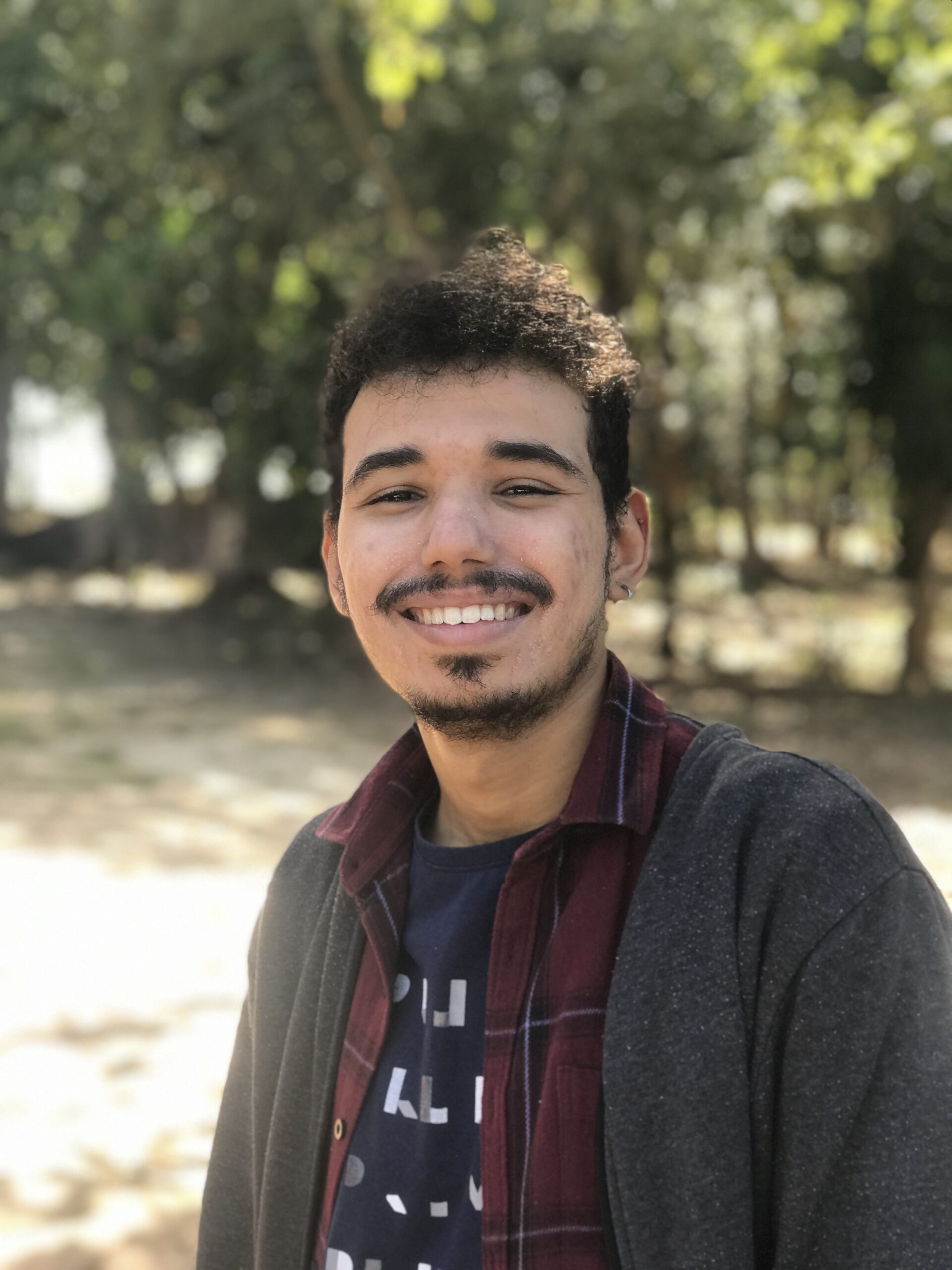
Matthew Santos
Graduating in Cinema and Audiovisual from the State University of Goiás, Mateus is passionate about creating stories and building narratives. With more than 5 years of experience in the audiovisual area, he has accumulated experience in the functions of direction, production, scriptwriting, editing and criticism. The projects in which he worked have already been recognized at Goiás and international festivals. Currently, he focuses on post-production, working on editing and sound editing of fiction, experimental and documentary films, in addition to working on the production of independent projects.
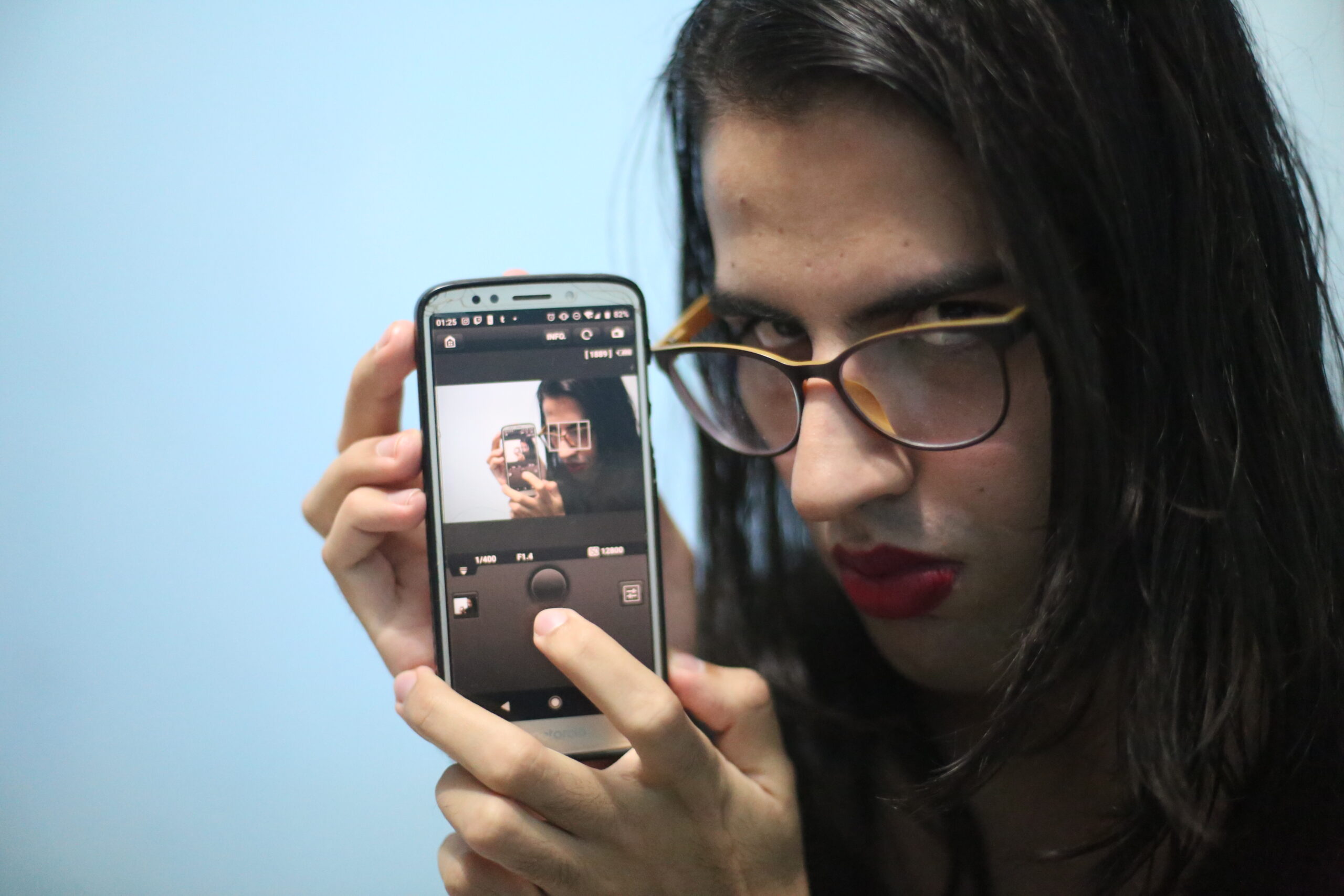
Julia F. Candida
Júlia is a transgender filmmaker and audiovisual student in the City of Goiás. She recently directed, wrote and edited the short film “Sagrada Travesti do Gospel” (2024). She has already worked on projects as director of photography on the short film “Por Que Não Eu?” (2020) and the short film “SOnhoS” (2023) and was also the writer of the literary essay “The Euphoria that lies in Revolt: Loving Myself while Living in Brazil” published in the book “Gender Euphoria: Stories of Joy from Trans, Non Binary and Intersex Writers” (2020).
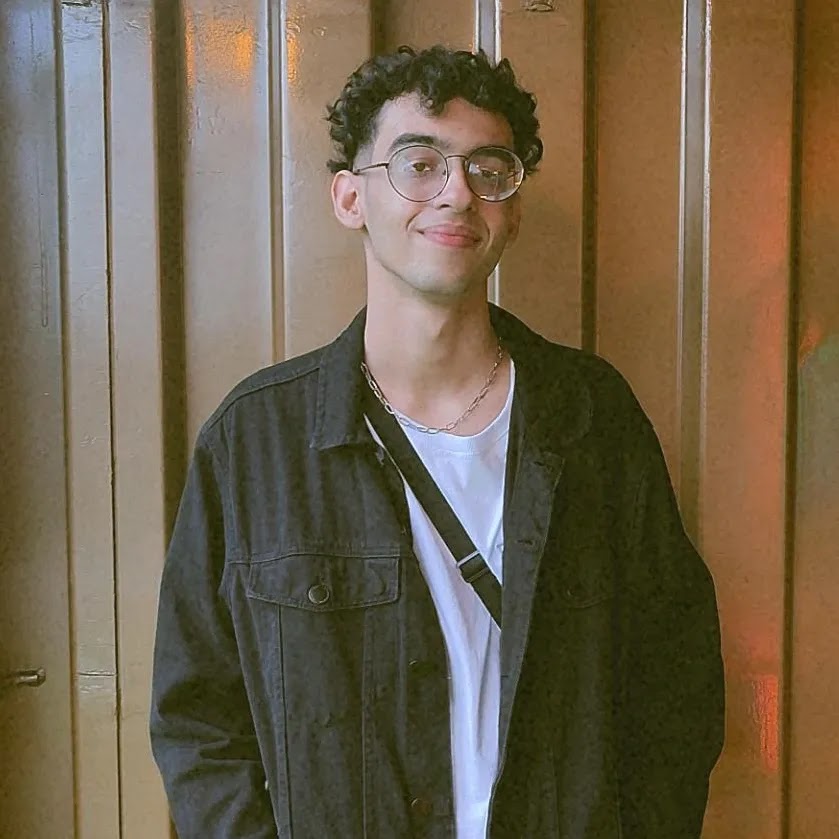
Hartman Ortiz
He is graduating from the Arts Direction course at UFG in search of opportunities to create and produce narratives relevant to the cultural scene in Goiás, which are capable of exploring current socio-political issues in Brazil and the world, and generating significant debates through cinema. He is in his penultimate period of his degree in Art Direction and his research is focused on the construction of Animated Forms in Theater. He also works as a Filmmaker and Screenwriter.
Fiocruz Jury
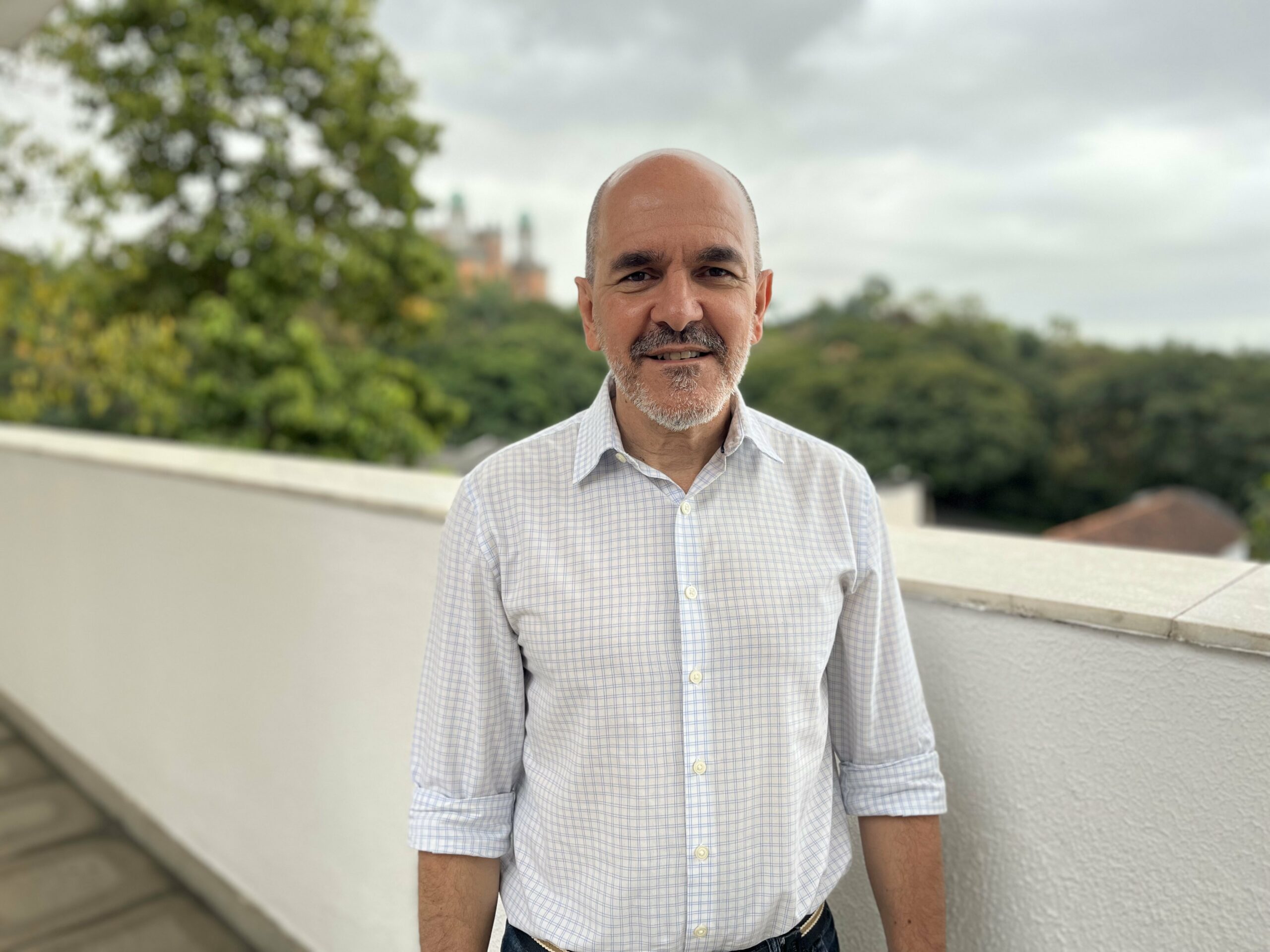
Heverton Campos de Oliveira
Graduated in Cinema, Master in Communication Sciences and PhD in Cinema and Audiovisual. He is a technical advisor to the Management of Casa de Oswaldo Cruz/Fiocruz, where he works in the areas of Cultural Heritage, Scientific Dissemination and Audiovisual Production. He participated in the creation of the animation series “Ciência em Gotas” about Brazilian scientists and the documentary series “Mestres e Ofícios” about masters of traditional Brazilian construction. He was also curator of the “Memória em Movimento” Film Exhibition.
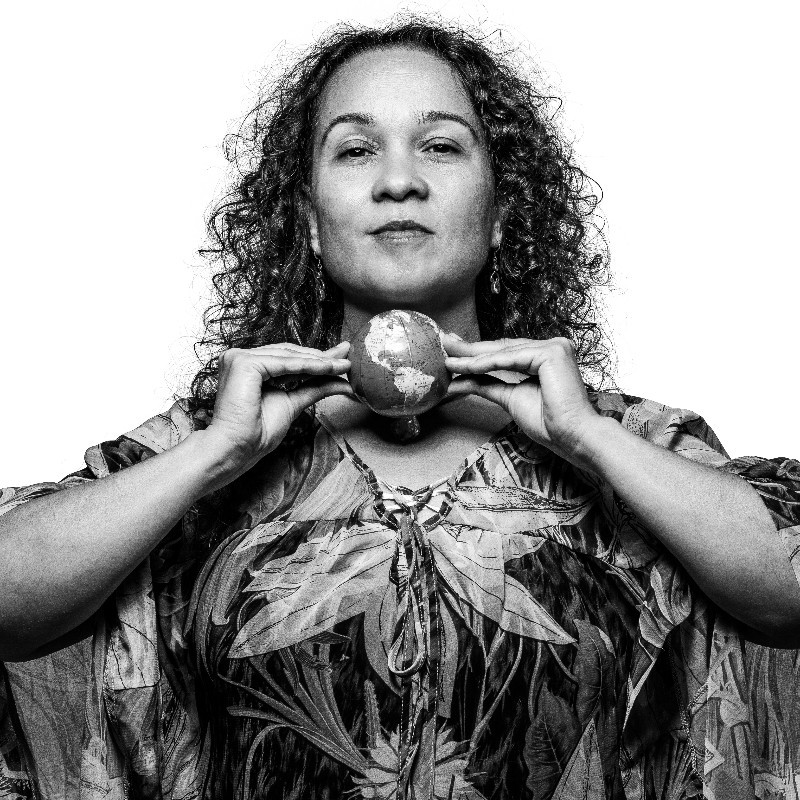
Márcia Cristina Fixel
Filmmaker and Video artist. Designer and Trainer for Sustainability through the Gaia Education/Brazil program (Key Partner of UNESCO Global Action Program on Education for Sustainable Development); with Training in the Cities in Transition project (Transition Towns/Brazil). Graduated in Social Communication, with an emphasis on Cinema (UFF). Bachelor's degree in Performing Arts and Degree in Artistic Education (UNIRIO). She began her career as a filmmaker as screenwriter and director of the short film “Cena de Metrô”, shown in the Première Brasil section of the IX Mostra Internacional do Filme (Mostra Rio, 1997) and the I Festival Internacional de Cinema da Amazônia (1998). It produces and exhibits video art works in different spaces such as the Shared Future Exhibition, with the theme of environmental sustainability (Centro Cultural Correios, Rio de Janeiro, 2023), the Mostra Poesia Cinética de Cinema Experimental, shown at the Cinemateca do MAM Rio and premiered at Paraty International Book Fair (2023). With the video art “Caos e Cosmos” he participates in the Exhibition Mulheres à Beira de um Attack de Artes (CCCRJ, 2023); with the video art “In Dimensions” he participates in the Poéticas do Tempo Exhibition (CCCRJ, 2024). Selected for the III Digital Art Biennial, whose theme will be SON (H) OPROFUNDO (2025).
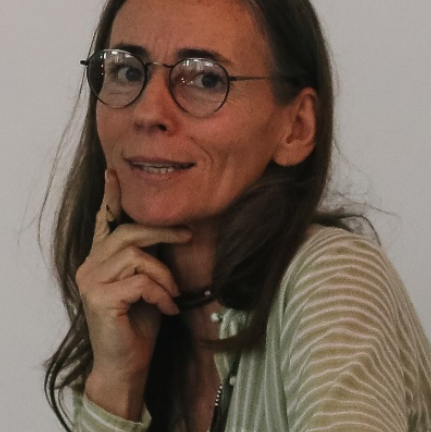
Marina Fasanelo
Researcher at the Center for Ecologies, Epistemologies and Emancipatory Health Promotion (Neepes/Cesteh/ENSP/Fiocruz). Collaborating Professor at ENSP-Fiocruz. PhD in Sciences at ICICT-Fiocruz. Doctoral Internship at the Center for Social Studies at the University of Coimbra. FAPERJ NOTE10 scholarship. Master in Cinema and Education at UFRJ. He carried out the project “The school goes to the Cinemateca do MAM” in a partnership between FE-UFRJ and MAM involving public schools in the city of Rio de Janeiro. He has a degree in Journalism from UGF and in Pedagogy from UERJ. Art educator specializing in Waldorf pedagogy. Founding member of Escola Granada (Center for research, studies and publication of oral literature books), where he participated in the development of the pedagogical proposal Learning with Stories and now works on its dissemination. Research interests: developing interdisciplinary knowledge, sensitive methodologies and intercultural dialogues through different languages (scientific, artistic and popular). Languages that support social struggles for health, dignity and territorial rights of populations excluded from cities, fields, forests and waters, related to post-colonial approaches, especially Southern epistemologies.
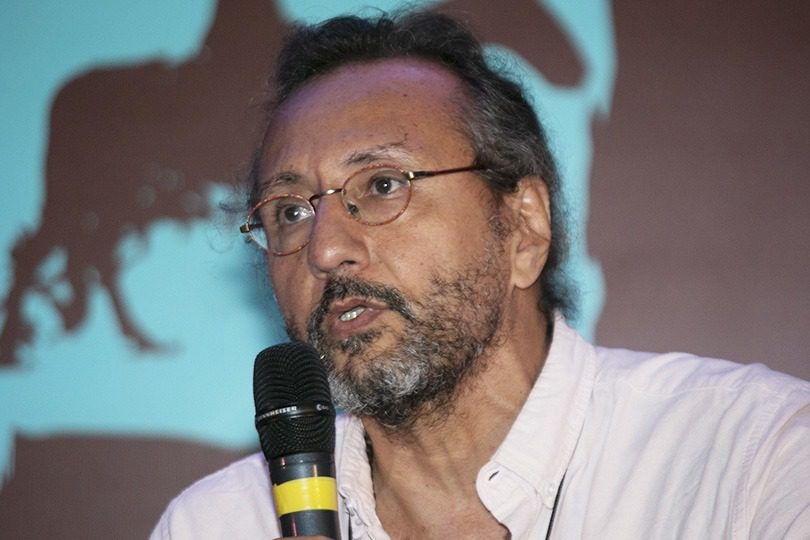
Marcelo Firpo
He has a degree in Production Engineering from UFRJ (1984) and in Psychology from UERJ (1991), a master's and doctorate in Production Engineering from COPPE/UFRJ (1994), with a sandwich doctorate (1992-1993) and post-doctorate (2001- 3) in Social Medicine at the University of Frankfurt. He has been a researcher since 1986 at the Center for Studies in Occupational Health and Human Ecology at the Sergio Arouca National School of Public Health, Oswaldo Cruz Foundation. In 2017 he became an associate researcher at the Center for Social Studies at the University of Coimbra. Works in the Public Health program (master's and doctorate) at ENSP/FIOCRUZ, area of concentration 'Determination of Health-Disease Processes: Production/Work, Territory and Human Rights', being responsible for two courses: 'Collective Health in dialogue with Epistemologies of the South` (together with CES/University of Coimbra) and ´Ecologies, Epistemologies, Emancipatory Health Promotion and Environmental Justice`. He also participates as a teacher in several latu sensu postgraduate and professional master's courses. In 2018 he created and acts as coordinator of the Center for Ecologies, Epistemologies and Emancipatory Health Promotion (Neepes/ENSP/Fiocruz). The main objective of NEEPES is to develop interdisciplinary knowledge, collaborative methodologies and intercultural dialogues that support social struggles for health, dignity and territorial rights in cities, fields, forests and waters. The proposal for an emancipatory health promotion seeks to articulate different dimensions of justice (social, environmental, health and cognitive) from three fields of knowledge: collective health, political ecology and post-colonial approaches, especially the epistemologies of South. Throughout his academic career he has published several books and articles in these fields. Neepes has two research and extension programs that provide the empirical bases for the theoretical-methodological development and social practices: the Map of Conflicts Involving Environmental Injustice and Health in Brazil started in 2008, and the Território em Movimento Laboratory (LTM) which operates in favela territories in Rio de Janeiro and was started in 2003. A central challenge of NEEPES is to bring together reason and affection to promote emancipatory actions through participatory, collaborative and non-extractive methodologies that establish bridges between scientific, artistic and popular.
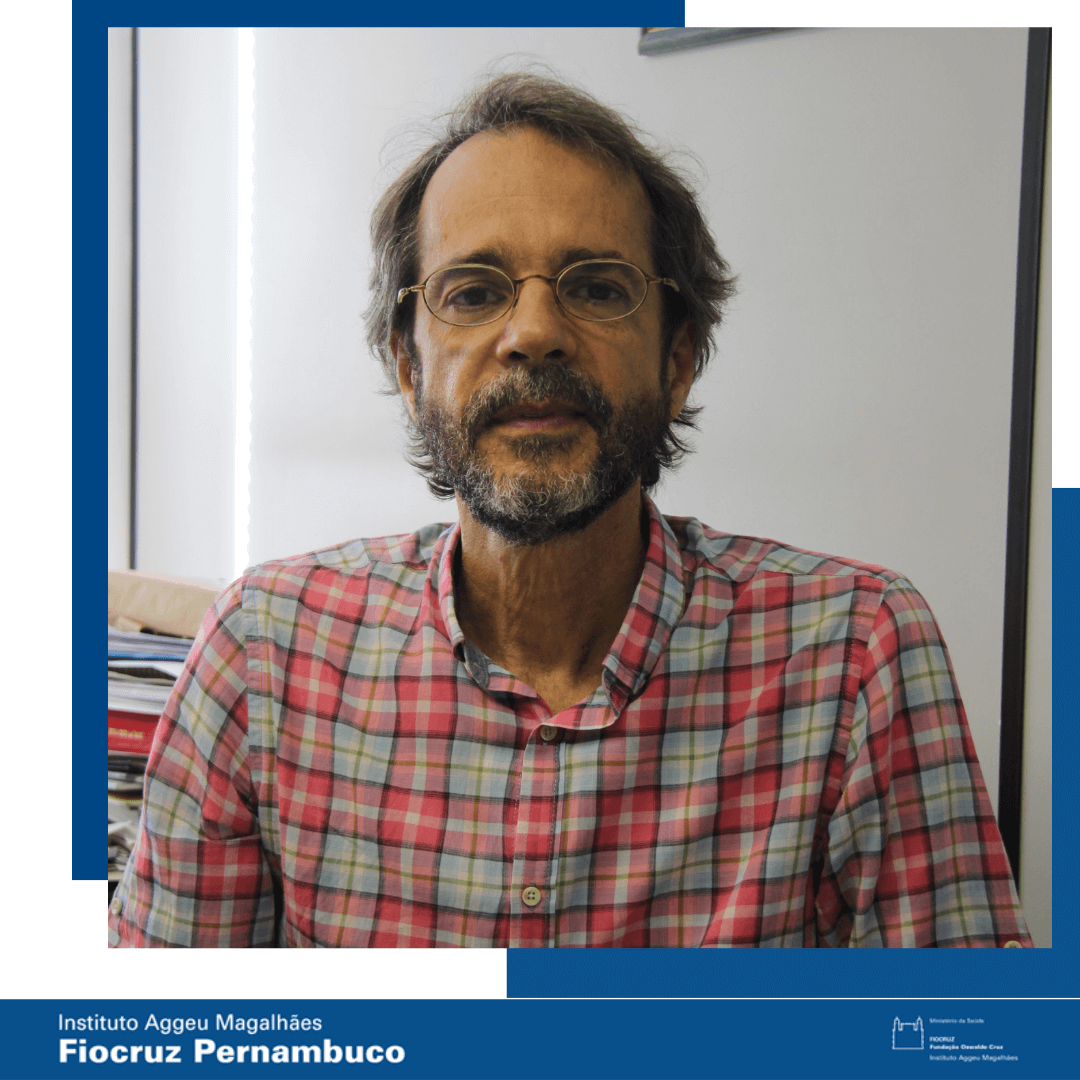
André Monteiro Costa
Degree in Mining Engineering - Federal University of Pernambuco (1986), Specialist in Public Health Engineering / Fundação Oswaldo Cruz (1990), Master in Public Health / Fundação Oswaldo Cruz (1994), Doctor in Public Health from Fundação Oswaldo Cruz (2003 ). Internship in Health and Environment/ London School of Hygiene and Tropical Medicine (1999). He is currently a Senior Researcher at the Department of Public Health, at the Aggeu Magalhães Research Center, at the Oswaldo Cruz Foundation. Coordinated the Health, Environment and Work Laboratory-Lasat. Experience in the area of Public Health, with an emphasis on Sanitation, Environmental Health, Political Ecology, Environmental Justice. Develops research with ecosystemic approaches to the processes of vulnerability of territories and populations, resulting from the implementation of neo-extractivist projects. Traditional peoples and communities, living territories and water are central to research, teaching and technical cooperation. The São Francisco transposition project area and the São Francisco river basin are priority areas for action. He is a member of the board of the Stricto sensu Postgraduate Program in Public Health and the Professional Program of IAM/Fiocruz and of the Postgraduate Program in Health and Socio-Environmental Development/UPE-Campus Garanhuns/PE. He is deputy coordinator of the CNPq Environmental Health Research Group. Member of the Water and Sanitation Working Group at Fiocruz, Member of the Working Group on Rural Health, Forests and Water at Fiocruz and Coordinator of the Health & Environment Working Group of the Brazilian Association of Public Health-Abrasco. He is a member of the Coletivo Transvergente, made up of professors from UPE, Fiocruz and UFCG, with the participation of students from these institutions, in reparation actions in communities made vulnerable by the implementation of works to transpose the São Francisco River, in processes with unions and community leaders, aiming rescue your dignity.
Show Cinema Goiano and Becos da Minha Terra
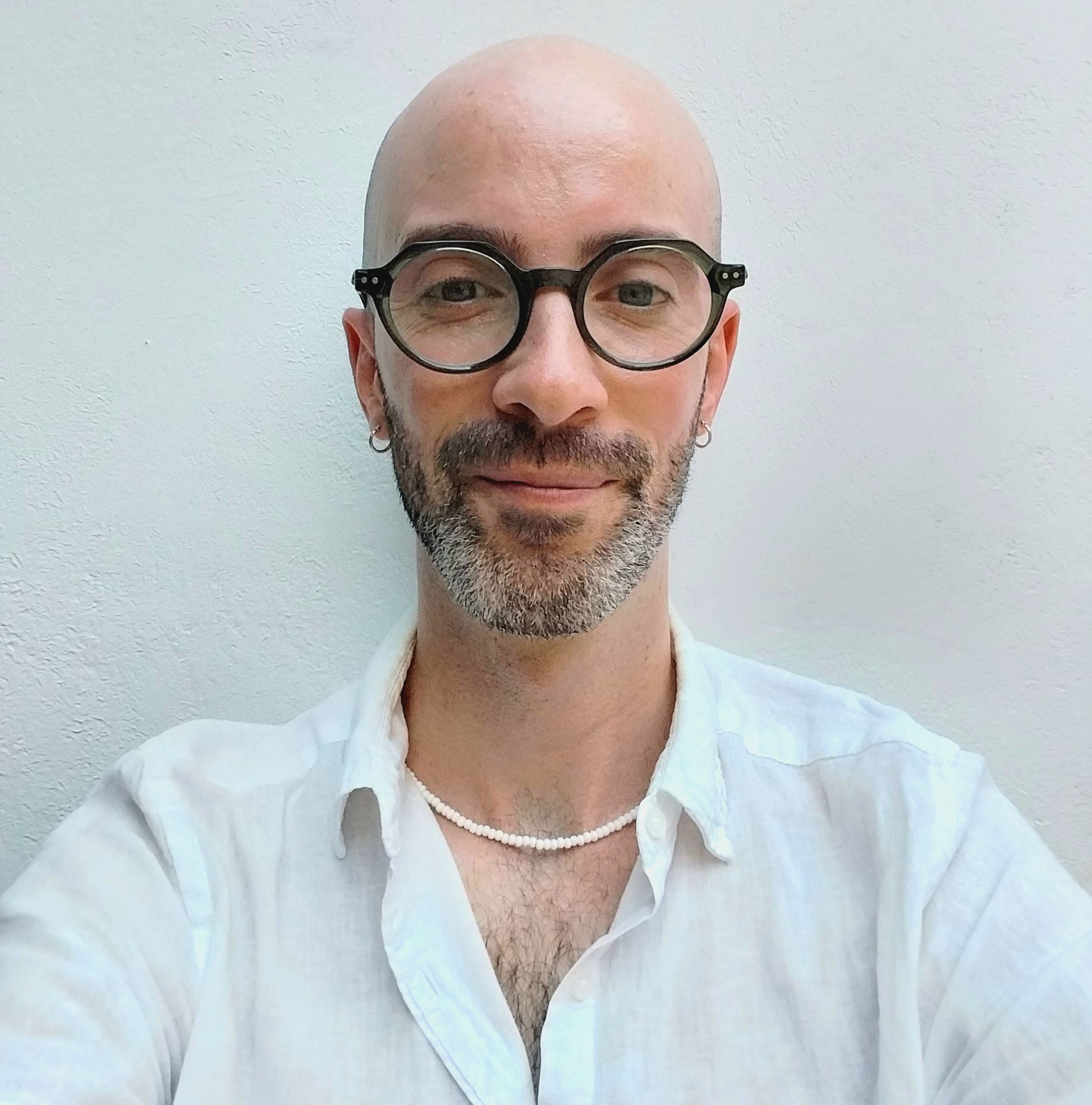
Ibirá Machado
Graduated in geography from USP, but has been working with cinema since 2009, when he began working as a film society organizer and exhibition curator. In 2011 he joined the newly founded Vitrine Filmes, where he stayed until 2014 and produced and released more than 30 films. In 2017, he founded his own distribution company, Descoloniza Filmes, prioritizing works directed by women, black people, indigenous people, LGBTQIA+ and with themes of decolonial relevance, with which he has already brought more than 20 films to cinemas.
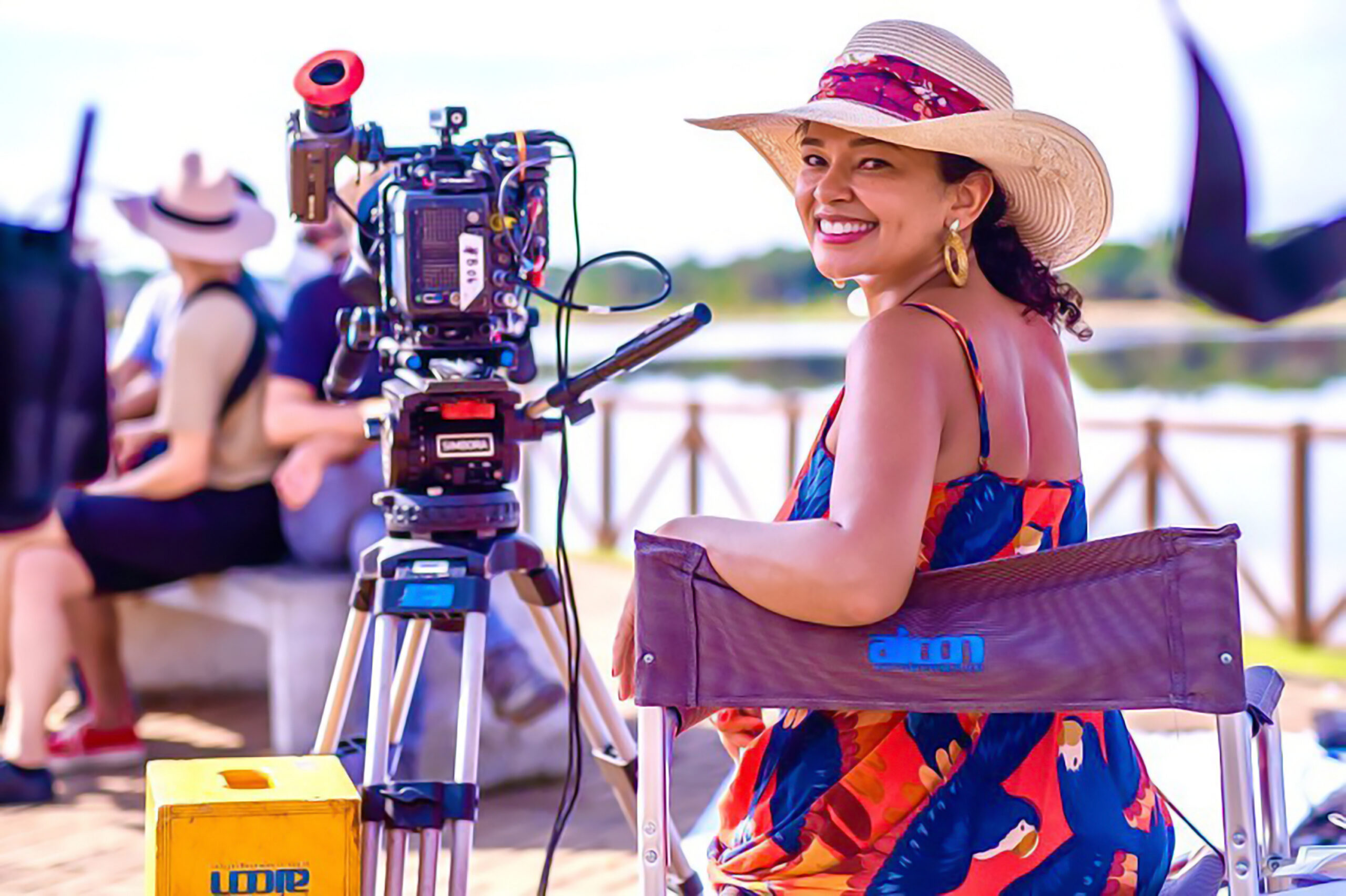
Eva Pereira
Screenwriter, director and audiovisual producer. With 25 years in the market, she is considered one of the most active professionals in the North Region and breaks boundaries by signing work for players/channels, such as: Disney Plus, Amazon Prime, Globoplay and TV Globo.
In 2023 she was the only female director in the feature fiction competition at the 51st Gramado Film Festival (RS) with the film “O Barulho da Noite”, which was also at the 47th International Film Festival in São Paulo and was selected for the Competitive Exhibition of the 15th edition of FEStin – Lisbon (2024). Still in 2023 – Directed and produced the episode “AnaVitória” for the Disney Plus original series “Minha Música, Minha Terra,” (available in the catalogue) In 2022, directed and produced the episode “Glória Groove” for the Disney Plus series “ A La Música Está Servida”, available in the catalogue. 2022/2023 – Co-produced and directed the documentary series “ELAS POR ELAS E POR NÓS) (in completion).
She is the writer and director of the documentary series “The Mystery of Nhemyrõ” available on Amazon Prime. She wrote the script and direction for ep. 6 of the feature film “Palmas eu gosto de tu”.
She is currently working on the pre-production of the feature fiction film “Luziléia – O sertão em meu Olhos” (direction and script). And in 2025, she will direct TKAI KRA – Filha da Terra.
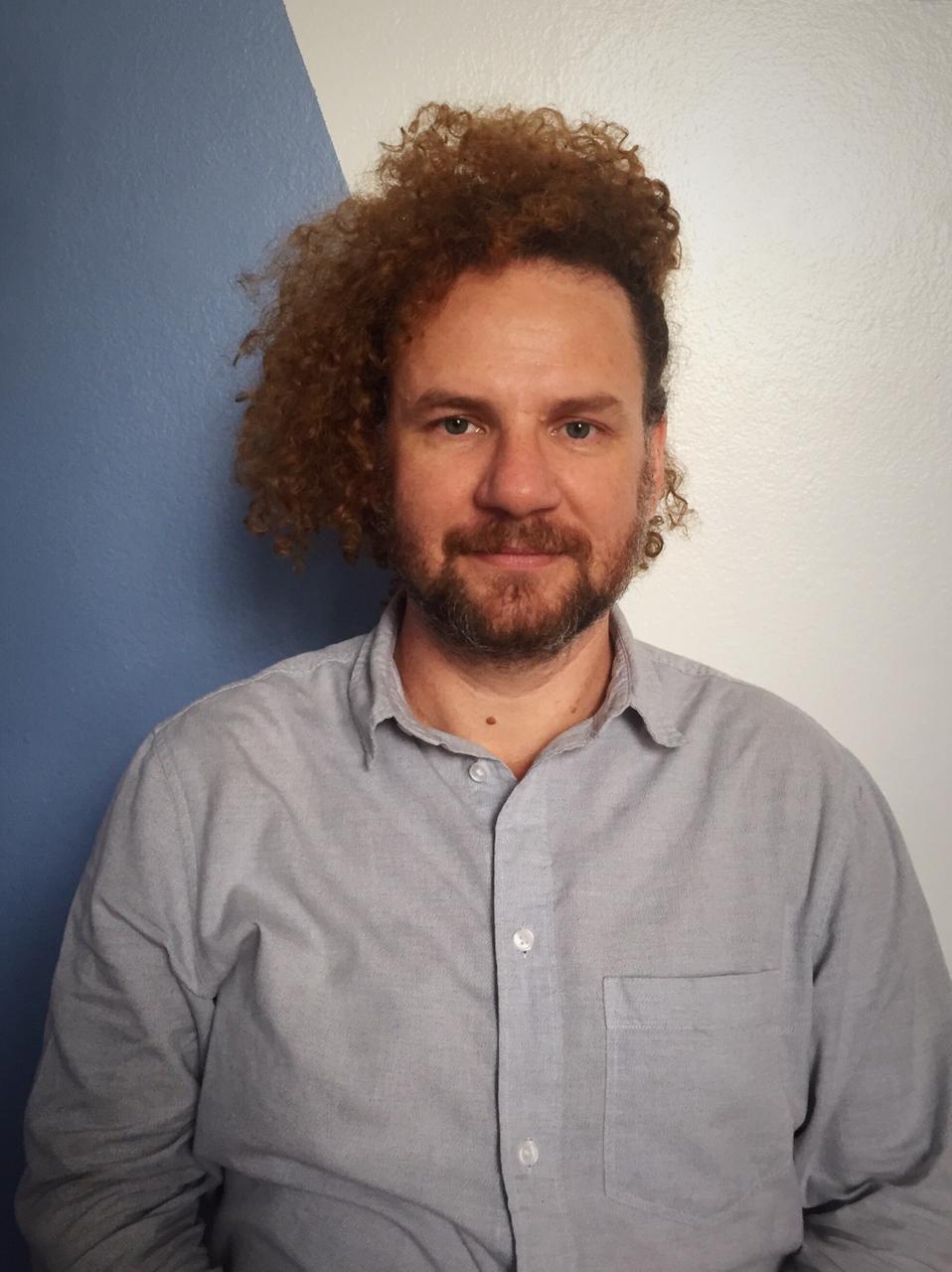
Clemilson Farias
Acreano, graduated in Production from the International School of Cinema and Television of Cuba (EICTV). He worked as executive producer at Usina de Arte João Donato do Acre (2007-2010) and as executive producer at the Northern Regional Office of the Content Production Line for Public TV – BRDE / FSA / ANCINE in Manaus/AM (2014-2017) . Currently, in addition to the audiovisual productions he works on, he is one of the coordinators of MATAPI – Mercado Audiovisual do Norte and the Tela Amazônia platform. He is also the Northern Director of Conexão Audiovisual Centro-Oeste, Norte e Nordeste-CONNE and member of the Superior Cinema Council.
Indigenous Cinema and Traditional Peoples Exhibition
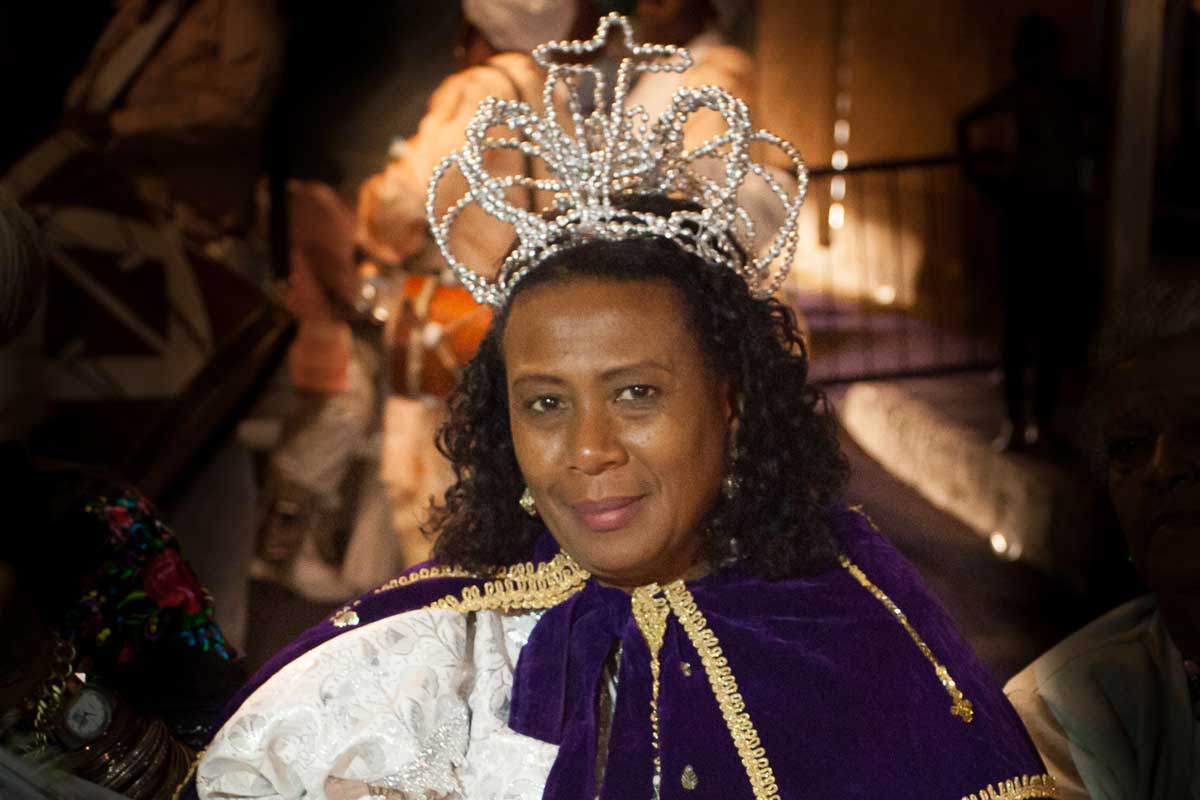
Isabel Casimira
Conga queen of the Guard of Mozambique and Congo Treze de Maio of Nossa Senhora do Rosário and queen of the Federation of Congados of Minas Gerais. Researcher and professor, participating in the Transversal Program in Traditional Knowledge at the Federal University of Minas Gerais. She is co-director of the film: “A Rainha Nzinga Chegou” (Brazil/Angola, 2018, 74min) which won the awards for Best Feature Film at the Adéila Sampaio Black Cinema Exhibition (Federal University of Brasília, 2019) and the Special Jury Prize at the 19th Festival Panorama Internacional de Cinema da Bahia, Salvador, 2019, having received an Honorable Mention in the Pierre Verger Award, Ethnographic Film category, in 2018. His most recent documentary work is “A Estrela do Oriente visits the Reino Treze de Maio” (co-direction Júnia Torres, Brazil, 2024, 90 min).
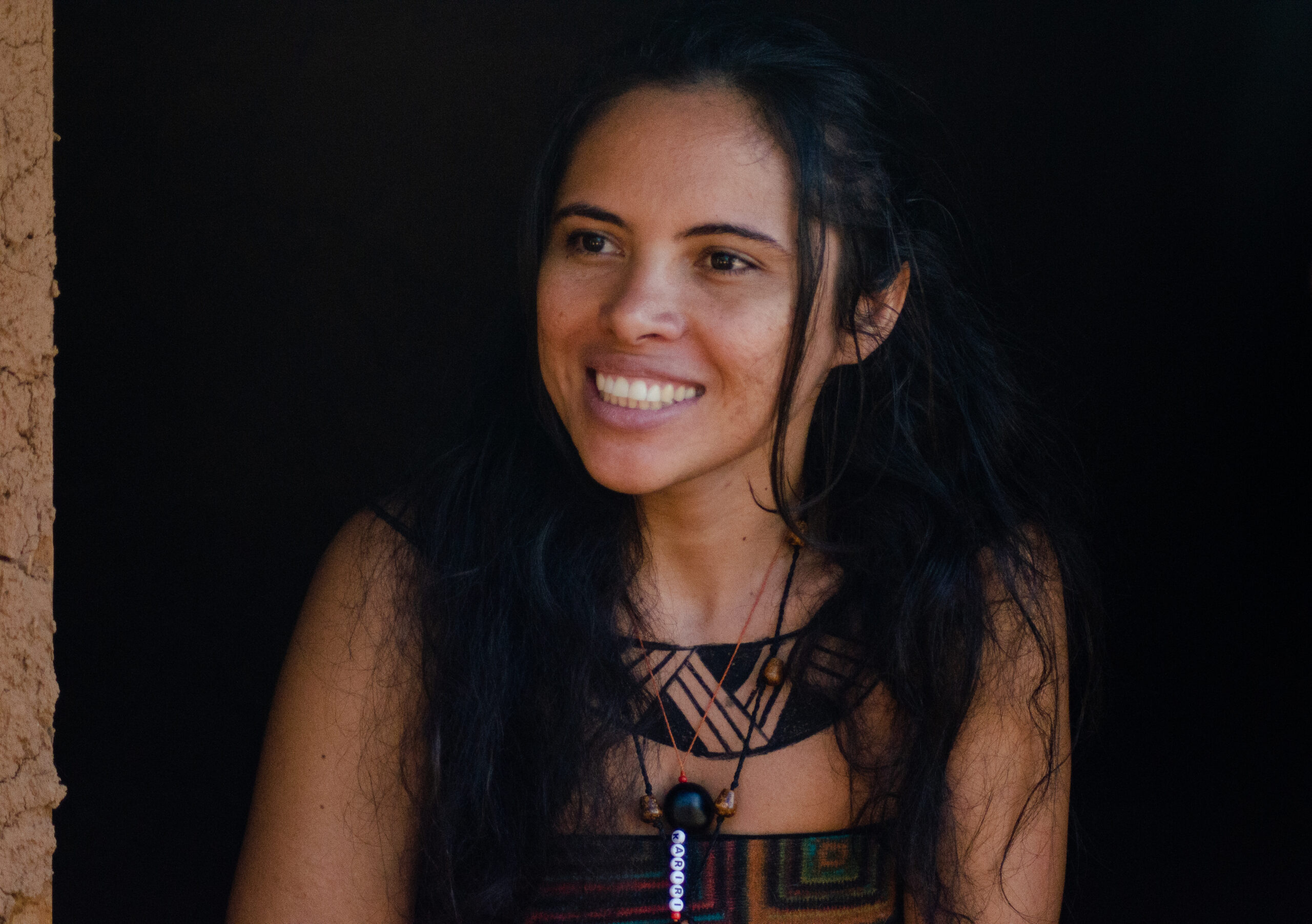
Barbara Matias Kariri
Barbara Matias is an indigenous member of the Kariri People (Aldeia Marrecas, Ceará), a stage artist, audiovisual director, writer and curator. It is part of the Katahirine Network – Audiovisual Network of Indigenous Women and the Flecha Launched Art Collective. PhD in Arts -UFMG.
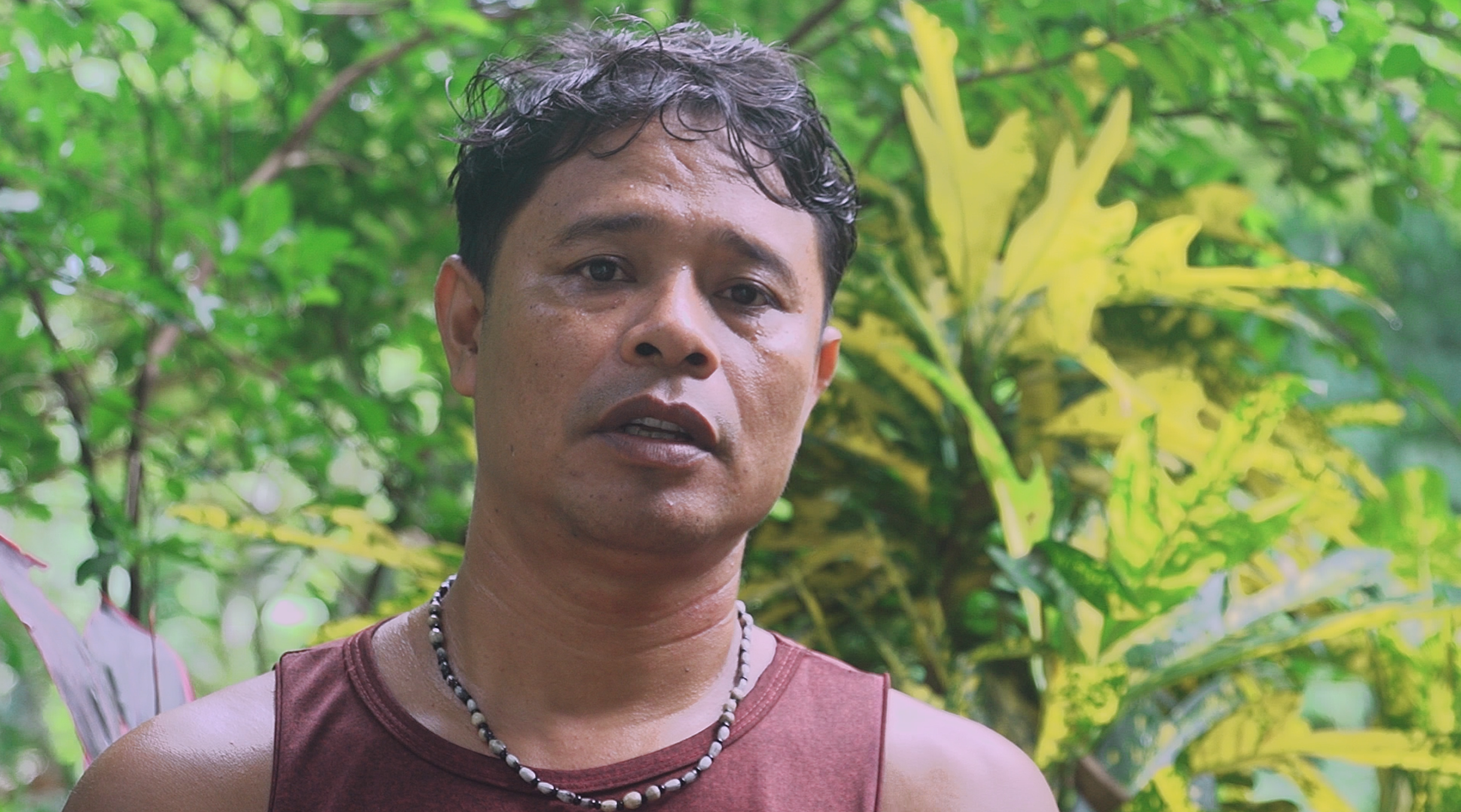
Alberto Alvares
Alberto Alvares has a master's degree in the Postgraduate Program in Audiovisual Cinema at the Fluminense Federal University. Indigenous filmmaker from the Guarani Nhandewa ethnic group, born in the village of Porto Lindo, Mato Grosso do Sul, he also works as a Guarani teacher and translator and teaches training courses for indigenous filmmakers. Since his debut in 2010, Alberto Guarani has directed more than 20 documentaries, including “Karai ha ' egui Kunhã Karai 'true spiritual leaders” (2014), “The last dream” (2019) and “Guardião das Memórias” which was shown at the 21st Contemporary Art Biennial Sesc_Videobrasil in 2020. Feature-length documentary Yvy pyte – Coração da Terra. Project Itaú Cultural/Rumos, 2023. With his films he won awards, including at forumdoc, in Belo Horizonte, and at Doclisboa, in Lisbon. 2022, Professor of audiovisual cinema course for the Indigenous Lives project in Maranhão between Ka'apor and Awa Guaja Museu da Pessoa peoples.
He also acted as one of the authors of Falas da Terra Especial (2021), on TV Globo. Direction of feature-length documentary 2023 Mondes Motyrõ Funded Project in progress. Americains — EHESS (France/Paris) Direction and filming of the ongoing Itaú Cultural Play Project for 3 series episodes: Future of the Earth, 2023.
